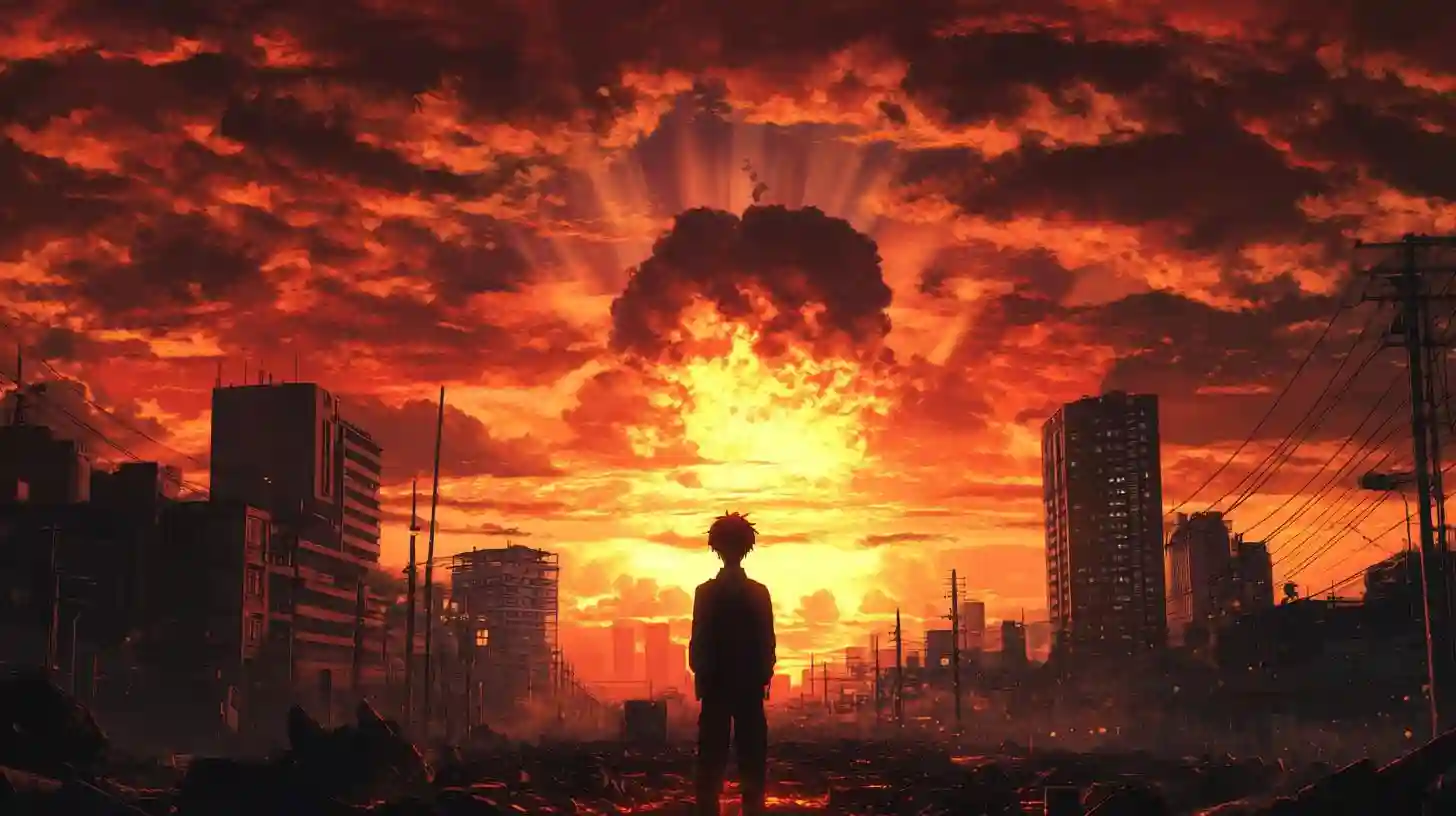
The landscape of anime has always been vast and varied, encompassing genres that range from light-hearted comedies to intense dramas. However, in recent years, a noticeable trend has emerged in the form of doomsday-themed anime. These series delve into apocalyptic scenarios, dystopian futures, and the grim possibilities of human existence, captivating audiences worldwide. The popularity of doomsday anime can be attributed to several intertwining themes: reflecting societal fears, exploring existential questions, and encapsulating the human condition in moments of extreme crisis.
At the core of the doomsday genre lies a potent reflection of contemporary societal fears. Modern audiences are increasingly exposed to rampant climate change discussions, political instability, economic uncertainty, and rapid technological advancements. Such issues fuel anxiety and provoke questions about the future. Doomsday anime captures these sentiments perfectly, as they often depict worlds ravaged by catastrophe, whether through environmental destruction, nuclear fallout, or societal collapse. The sheer chaos and unpredictability portrayed resonate with viewers who may feel that the fragility of their own reality is mirroring the narratives unfolding on their screens.
By dramatizing the collapse of civilization, doomsday anime allows audiences to confront their fears in a controlled environment. The protagonist's struggle against overwhelming odds often serves as a cathartic outlet for viewers. Series like "Attack on Titan" showcase humanity's battle for survival against colossal threats that symbolize real-world fears, such as the loss of autonomy and the struggle against overwhelming systems. This connection to existential dread creates a unique bond between viewer and narrative, as they witness characters grappling with the loss of normalcy, community, and hope.
Amid the devastation, these anime also provide fertile ground for exploring philosophical questions about life and humanity's place in the universe. Characters often undergo significant transformations in the face of apocalypse, prompting viewers to reflect on their own lives and choices. The pursuit of survival comes with moral dilemmas and ethical quandaries, leading to profound debates about the value of life, the nature of sacrifice, and the effects of trauma. Titles like "Neon Genesis Evangelion" delve into the psychological and emotional toll of catastrophic scenarios, forcing viewers to confront their inner turmoil and the existential weight of existence itself.
Furthermore, doomsday anime taps into a shared human fascination with stories of resilience and rebirth. In the midst of darkness, themes of hope, camaraderie, and recovery emerge. Despite the grim settings, many characters embody unwavering determination and an indomitable spirit that inspires viewers. The juxtaposition of despair and hope provides a counterbalance, portraying humanity's capacity for growth even in dire circumstances. This narrative dichotomy serves to captivate audiences, as it reminds them of their strength and capability to adapt, persevere, and rebuild.
Interestingly, the rise of doomsday anime coincides with a growing trend in global storytelling. As uncertainties loom large in various parts of the world, such narratives open a space for discourse on societal problems and potential solutions. The genre acts as a creative medium to address issues like mental health, environmental stewardship, and social inequality. Through its characters and plots, doomsday anime encourages critical thinking about real-world challenges while simultaneously offering escapism through fantastical portrayals of destruction and survival.
As audiences embrace doomsday-themed narratives, it becomes clear that this genre does not merely reflect the anxieties of a specific culture or time; it resonates on a universal level. The emotional experiences shaped by apocalyptic storytelling transcend cultural barriers, allowing viewers from diverse backgrounds to connect with fundamental human concerns. The evolution of doomsday anime indicates a shift in storytelling priorities, as creators respond to audience needs for both escapism and introspection in an increasingly uncertain world.
While apocalyptic themes may seem bleak at first glance, the popularity of these series highlights a nuanced understanding of the human experience. By engaging with the darker aspects of life, doomsday anime not only provides entertainment but also fosters dialogue about fear, hope, and resilience. The genre serves as a mirror, reflecting societal issues while prompting important conversations on the ways we navigate our collective anxieties and ambitions. As we continue to witness the evolution of doomsday anime, it will undoubtedly reveal more about the complexities of human existence and our ever-changing relationship with the world around us.